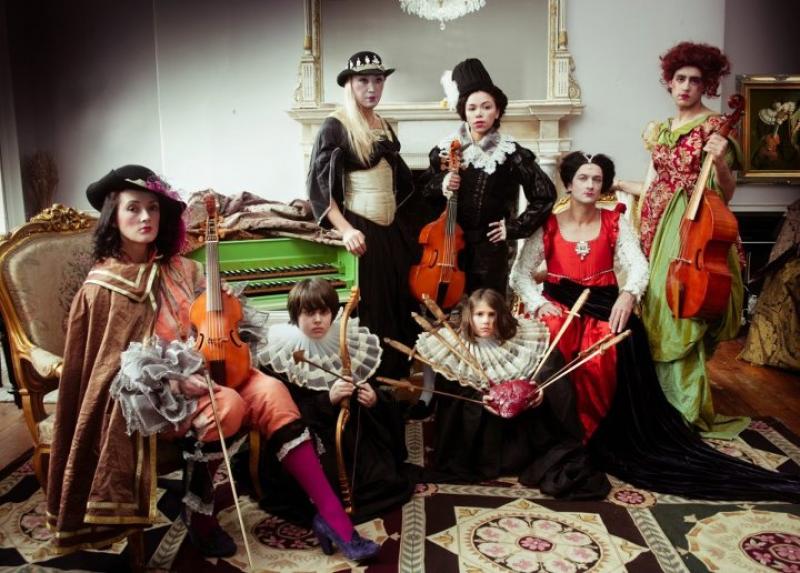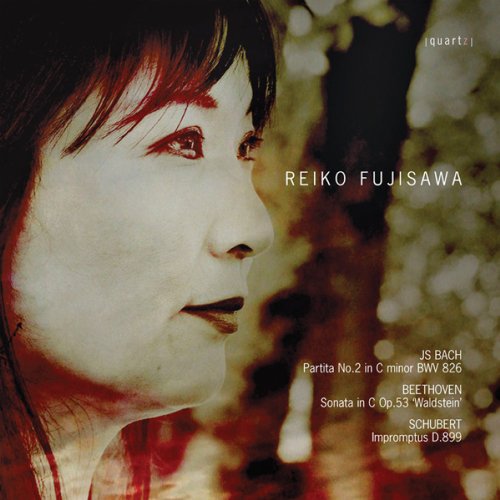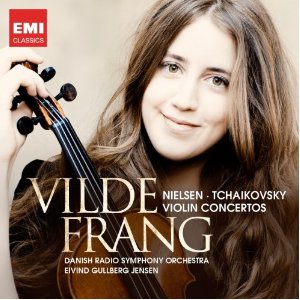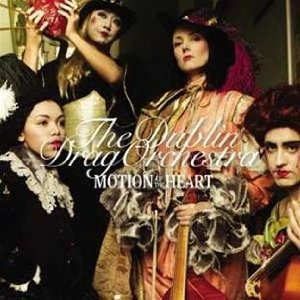Classical CDs Weekly: Nielsen, Tchaikovsky, Reiko Fujisawa, The Dublin Drag Orchestra | reviews, news & interviews
Classical CDs Weekly: Nielsen, Tchaikovsky, Reiko Fujisawa, The Dublin Drag Orchestra
Classical CDs Weekly: Nielsen, Tchaikovsky, Reiko Fujisawa, The Dublin Drag Orchestra
A debut disc from a Japanese pianist, violin concertos played by a young Norwegian and early music from Ireland


Each of these three composers makes very specific, particular demands on a pianist’s technique. Playing Bach as sharply and as delicately as this doesn’t suggest that Reiko Fujisawa will be up to the mark when tackling the spongier, more amorphous world of Schubert’s Impromptus, but she’s able to inhabit both sound worlds with ease. Having a mixed programme on CD is such a rare pleasure; this is like listening to a carefully prepared live recital. The Schubert comes at the end of the disc. The major-minor shifts in the first Impromptu are as disconcerting as ever. The second Impromptu’s dizzy waltz is never breathless, and the dynamics are carefully graded. Lovely, in other words; these readings capture the elusiveness of Schubert’s inspiration – superficially light music possessing bewildering profundity. Beethoven’s Waldstein Sonata can’t help sounding a little blustery and excitable by comparison, as if it’s trying too hard to impress. Still, Fujisawa’s boundless energy and lightness of touch provoke grins, and the clarity which she brings to Beethoven’s occasionally murky left hand writing is remarkable.
There’s nowhere to hide in Bach’s C minor Partita. Here, the sparser two and three-part textures are filled with such colour that looking at the bareness of the score comes as a shock. Fujisawa plays cleanly, crisply and with brilliant rhythmic drive in the fast closing movements. Best is the understated, cool Sarabande, the incessant slow semiquavers never sounding academic. Sumptuously recorded too; this is an irresistible disc.

Contrary to the image presented in recent BBC Four imports, Denmark is not a land of damp drizzle. Carl Nielsen’s output is rightly celebrated for its dramatic qualities, but he was also a composer who could write supremely sunny, cheery music. His 1911 Violin Concerto fits the bill perfectly. It rambles along, digresses, then wanders off in unexpected directions. And always projecting a serene, unruffled countenance. Uniquely lovable in other words, even if the baggy four-movement structure could perhaps do with a bit of trimming. Norwegian violinist Vilde Frang is fully immersed in Nielsen’s idiom, for her, a composer “who isn’t boisterous or sarcastic – his laughter is soft and warm-hearted”. And for a large-scale work by an important composer, this concerto is sadly neglected. Which Frang says is because “It isn’t an ego piece with which violinists can boost their self-esteem.” It’s still incredibly difficult to play well – the second movement cadenza particularly daunting. The concerto doesn’t so much finish as come to a cheekily abrupt full stop. Gorgeous.
Tchaikovsky’s more familiar concerto almost plays itself; so well known that a soloist has to bring something pretty special to it to stand out. Frang’s account is characterised by its unforced innocence. She never hams things up. A tender, pure-toned Canzonetta precedes Tchaikovsky’s manic finale, where the fireworks won’t disappoint anyone. Sensitive but full-blooded orchestral support from Jensen’s Danish orchestra, and high-class sound. Unmissable, especially for the Nielsen.
Watch Vilde Frang play Tchaikovsky's Violin Concerto:

Listen to the first disc of this double album without looking at the cover art and you’ll be won over by the first seven tracks; songs and instrumental pieces by 17th-century English composers, brilliantly performed. Pieces for viol consort by William Lawes accompany vocal works by John Dowland and John Ward; the latter’s Hope of my Heart is exquisite here. The restraint, the emotional coolness of the music is skilfully projected; we’re in a world of muted colours and repressed emotions. Then the Dublin Drag Orchestra suddenly lurch off in two surprising directions; the Irish folksong "Dónal Óg" soars above a subdued viol backing. And emotionally it’s not such a huge leap to one of the 20th century’s bleakest songwriters in a jaw-dropping reinvention of Hank Williams’s Cold, Cold Heart, which made me cry on first hearing it, the harmonies invoking Sixties California as much as 17th-century England.
The second disc is Mexican-tinged, soprano Clara Sanabras’s recent La Vida Callada setting words by artist Frida Kahlo. Viols and a pair of guitars provide delicious backing. As they do in 17th-century songs by Gaspar Fernandes, Antonio de Salazar and Sebastián Durón. A shame that the sleeve notes are so sketchy; it would be useful to know who sings and plays what on each track.
Share this article
The future of Arts Journalism
You can stop theartsdesk.com closing!
We urgently need financing to survive. Our fundraising drive has thus far raised £49,000 but we need to reach £100,000 or we will be forced to close. Please contribute here: https://gofund.me/c3f6033d
And if you can forward this information to anyone who might assist, we’d be grateful.

Subscribe to theartsdesk.com
Thank you for continuing to read our work on theartsdesk.com. For unlimited access to every article in its entirety, including our archive of more than 15,000 pieces, we're asking for £5 per month or £40 per year. We feel it's a very good deal, and hope you do too.
To take a subscription now simply click here.
And if you're looking for that extra gift for a friend or family member, why not treat them to a theartsdesk.com gift subscription?
more Classical music
 Bizet in 150th anniversary year: rich and rare French offerings from Palazzetto Bru Zane
Specialists in French romantic music unveil a treasure trove both live and on disc
Bizet in 150th anniversary year: rich and rare French offerings from Palazzetto Bru Zane
Specialists in French romantic music unveil a treasure trove both live and on disc
 Scottish Chamber Orchestra, Ibragimova, Queen’s Hall, Edinburgh review - rarities, novelties and drumrolls
A pity the SCO didn't pick a better showcase for a shining guest artist
Scottish Chamber Orchestra, Ibragimova, Queen’s Hall, Edinburgh review - rarities, novelties and drumrolls
A pity the SCO didn't pick a better showcase for a shining guest artist
 Kilsby, Parkes, Sinfonia of London, Wilson, Barbican review - string things zing and sing in expert hands
British masterpieces for strings plus other-worldly tenor and horn - and a muscular rarity
Kilsby, Parkes, Sinfonia of London, Wilson, Barbican review - string things zing and sing in expert hands
British masterpieces for strings plus other-worldly tenor and horn - and a muscular rarity
 From Historical to Hip-Hop, Classically Black Music Festival, Kings Place review - a cluster of impressive stars for the future
From quasi-Mozartian elegance to the gritty humour of a kitchen inspection
From Historical to Hip-Hop, Classically Black Music Festival, Kings Place review - a cluster of impressive stars for the future
From quasi-Mozartian elegance to the gritty humour of a kitchen inspection
 Shibe, LSO, Adès, Barbican review - gaudy and glorious new music alongside serene Sibelius
Adès’s passion makes persuasive case for the music he loves, both new and old
Shibe, LSO, Adès, Barbican review - gaudy and glorious new music alongside serene Sibelius
Adès’s passion makes persuasive case for the music he loves, both new and old
 Anja Mittermüller, Richard Fu, Wigmore Hall review - a glorious hall debut
The Austrian mezzo shines - at the age of 22
Anja Mittermüller, Richard Fu, Wigmore Hall review - a glorious hall debut
The Austrian mezzo shines - at the age of 22
 First Person: clarinettist Oliver Pashley on the new horizons of The Hermes Experiment's latest album
Compositions by members of this unusual quartet feature for the first time
First Person: clarinettist Oliver Pashley on the new horizons of The Hermes Experiment's latest album
Compositions by members of this unusual quartet feature for the first time
 Gesualdo Passione, Les Arts Florissants, Amala Dior Company, Barbican review - inspired collaboration excavates the music's humanity
At times it was like watching an anarchic religious procession
Gesualdo Passione, Les Arts Florissants, Amala Dior Company, Barbican review - inspired collaboration excavates the music's humanity
At times it was like watching an anarchic religious procession
 Classical CDs: Camels, concrete and cabaret
An influential American composer's 90th birthday box, plus British piano concertos and a father-and-son duo
Classical CDs: Camels, concrete and cabaret
An influential American composer's 90th birthday box, plus British piano concertos and a father-and-son duo
 Cockerham, Manchester Camerata, Sheen, Martin Harris Centre, Manchester review - re-enacting the dawn of modernism
Two UK premieres added to three miniatures from a seminal event of January 1914
Cockerham, Manchester Camerata, Sheen, Martin Harris Centre, Manchester review - re-enacting the dawn of modernism
Two UK premieres added to three miniatures from a seminal event of January 1914
 Kempf, Brno Philharmonic, Davies, Bridgewater Hall, Manchester review - European tradition meets American jazz
Bouncing Czechs enjoy their Gershwin and Brubeck alongside Janáček and Dvořák
Kempf, Brno Philharmonic, Davies, Bridgewater Hall, Manchester review - European tradition meets American jazz
Bouncing Czechs enjoy their Gershwin and Brubeck alongside Janáček and Dvořák
 Solomon, OAE, Butt, QEH review - daft Biblical whitewashing with great choruses
Even a top soprano and mezzo can’t make this Handel paean wholly convincing
Solomon, OAE, Butt, QEH review - daft Biblical whitewashing with great choruses
Even a top soprano and mezzo can’t make this Handel paean wholly convincing

Add comment